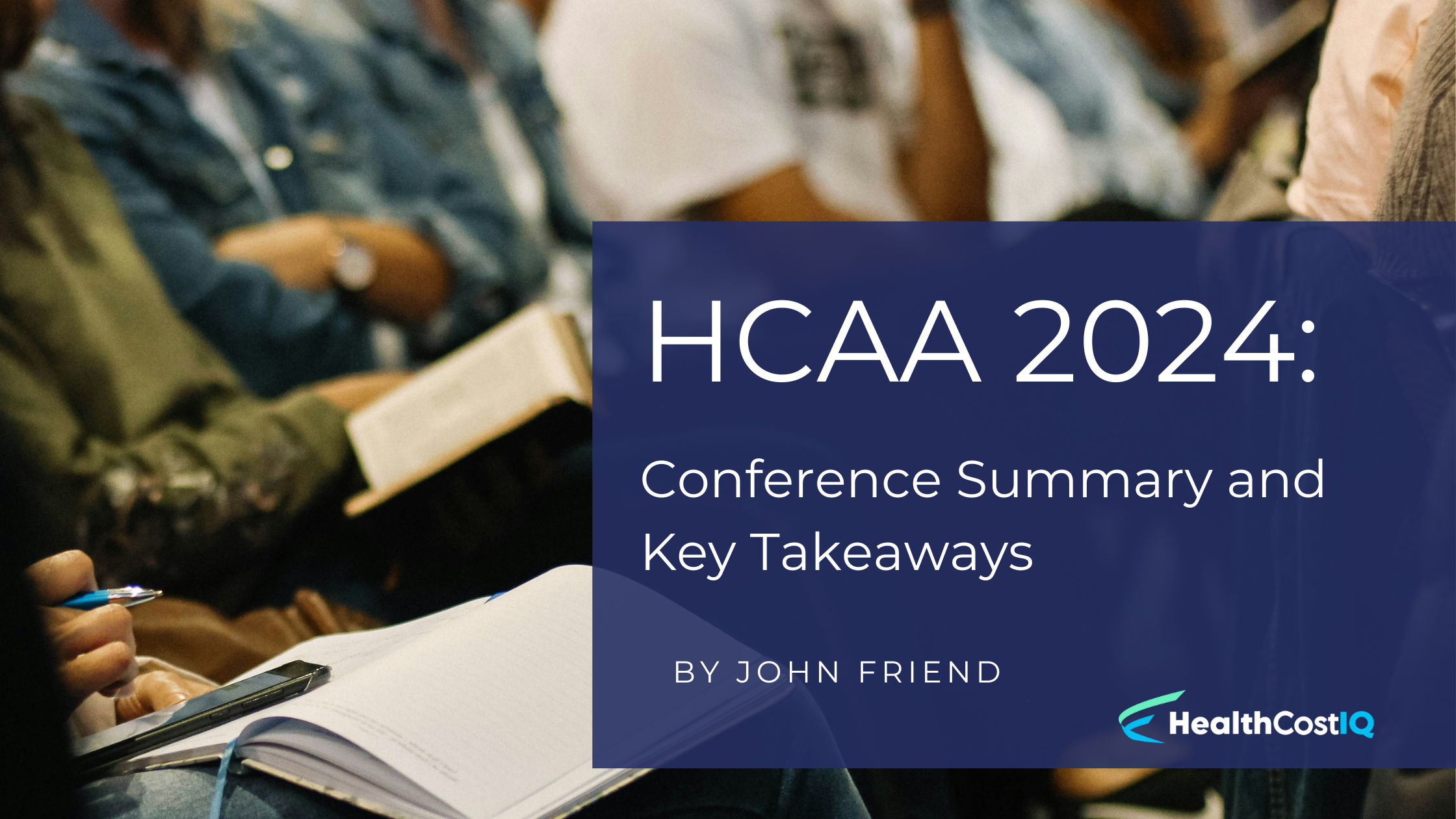
Implications of the Consolidated Appropriations Act, A Renewed Focus on Transparency, and Discussions on AI
The Health Care Administrators Association (HCAA), as described on their website, is “the nation’s most prominent nonprofit membership trade association supporting the education, networking, resource, and advocacy needs of benefits administrators (TPAs), stop loss insurance carriers, managing general underwriters, audit firms, medical managers, technology organizations, pharmacy benefit managers, brokers/agents, human resource managers, plan sponsors, and health care consultants.”
HCAA hosts two conferences a year, the most recent being the Executive Forum, which took place at the Bellagio in Las Vegas. It was an excellent gathering of TPA leaders and the organizations that serve this sector of the healthcare industry.
As the HCAA website notes, this annual conference “provides critical points of view, often disruptive, that are meant to challenge and to provoke thought while educating the attendees.” Having attended this year’s event, I can confidently say it successfully achieved its objectives. In this post, I’ll share our top takeaways, which focus on the ramifications of The Consolidated Appropriations Act, a renewed attention to price transparency, and deliberations concerning the future of Artificial Intelligence.
1 - Ramifications of The Consolidated Appropriations Act of 2021 (CAA): Like most congressional laws, this one took many twists and turns before passing. Once it finally cleared Congress, it was imbued with fiduciary obligations tied to the Employee Retirement Income Security Act of 1974 (ERISA). This legislation significantly bolsters ERISA's existing standards, particularly regarding employer-provided health benefits' effectiveness, quality, and value.
Previous bills echoing similar ideas have preceded this one, yet at the HCAA conference, there was a prevailing sentiment that this particular bill would be enforced. A recent lawsuit against Johnson & Johnson, alleging mismanagement of its employee health plan, likely foreshadows one of the ways this new legislation will be leveraged. Spurred by the CAA and the accompanying push for changes in how employer-sponsored health plans are handled, other suits could follow.
The CAA also opens the door to discussions about the quality of care physicians provide. Now, employers will have greater visibility into physician practices and outcomes and be on the hook to share this information with their employees. They’ll be tasked with monitoring problematic physician utilization patterns, as well as instances of waste, fraud, and abuse within their health plans—all of which are currently tracked and analyzed by HCIQ and our proprietary HealthAnalytIQ software platform. The CAA will heighten the urgency of this tracking and prompt action when physicians are acting out of line.
2 - Renewed Attention to Price Transparency: The CAA promotes the need for significant strides forward in healthcare price transparency. The question of what physicians and hospitals are paid for their services has been a top concern and point of discussion for many years now. However, with the enactment of the CAA, there's a prevailing belief that things will indeed change this time around.
Price transparency is critically important, especially for self-insured employers. While large insurance providers may strive to maintain secrecy around pricing details, self-insured employers, who are always looking for ways to keep costs down, will no longer rely on these conglomerates to share their trade secrets. With the help of this new legislation and partners like HCIQ, who are positioned to provide this kind of intelligence, self-insured employers will gain advantages from this push toward transparency. Consequently, their employees are poised to reap benefits through lower out-of-pocket healthcare expenses.
The CAA aims to end surprise medical bills by enforcing greater transparency in group health plans, such as requiring advance explanations of benefits (EOBs). It will also lead to more options for provider price comparison tools. Insights such as these will equip self-insured employers to make smarter, more financially sound decisions regarding health plan options for employees.
3 - The Role of AI in Health Plan Management: As is the case in almost every industry, concerns about Artificial Intelligence (AI) are on the rise. AI is full of unknowns, and it’s hard to predict whether its outcomes will lean towards more harm than good. During the HCAA conference, there was a healthy debate about AI's role in health plan management. It’s anticipated that AI will be used to streamline administrative processes, for instance. But regardless of its implementation, there’s no doubt that a fair amount of regulation will be required to keep the worst-case scenarios of AI in check.
At HCIQ, we’ll continue monitoring AI trends and opportunities. We currently have machine learning built into our software, and its algorithms enable us to identify risk trends, forecast healthcare costs, and predict potentially high-use, high-cost members—intelligence that is vitally important and useful to our clients.
Overall, the sentiment towards AI remains positive, but legitimate concerns exist. Most of the unease is linked to questions about how AI could interfere with HIPAA privacy laws and fears that AI could lead to the leaking of employee PHI, which should be kept private. Ultimately, it remains undecided who will lead the efforts to manage and protect employee health data, but for many organized labor and public employers, these worries are top of mind.
Our team left the HCAA conference energized by great conversations and mindful of the many thought-provoking industry discussions encountered. We’re encouraged to know that these important topics are being debated and hopeful for what’s to come in our industry. Thanks to HCAA for hosting a great event! We already have our sights set for next year’s Executive Forum.
For more information on HCIQ and how we help self-insured entities save money within their health plans, set up a time to connect with a member of our team today. Contact HCIQ.


Leave Your Comment Here